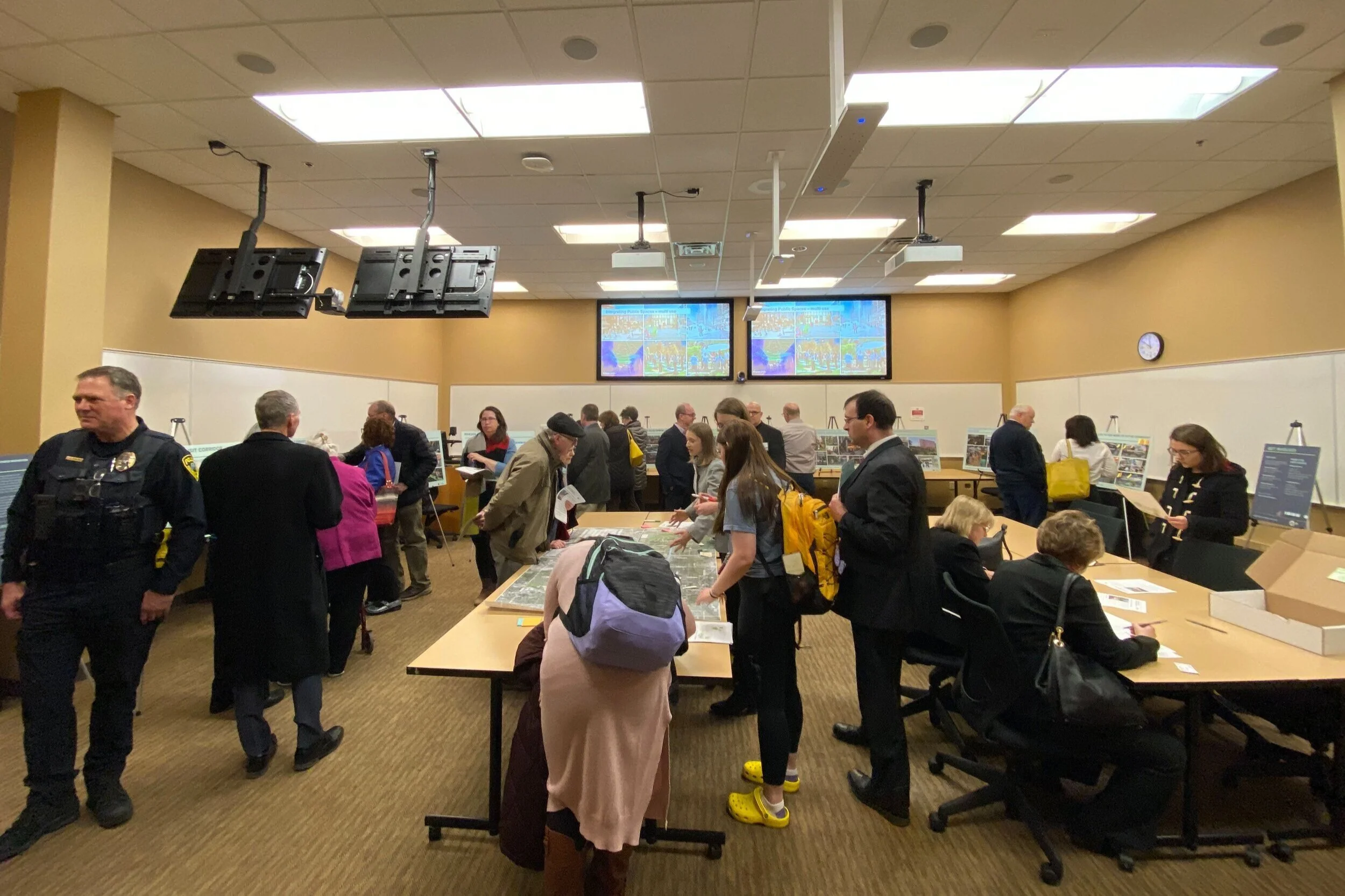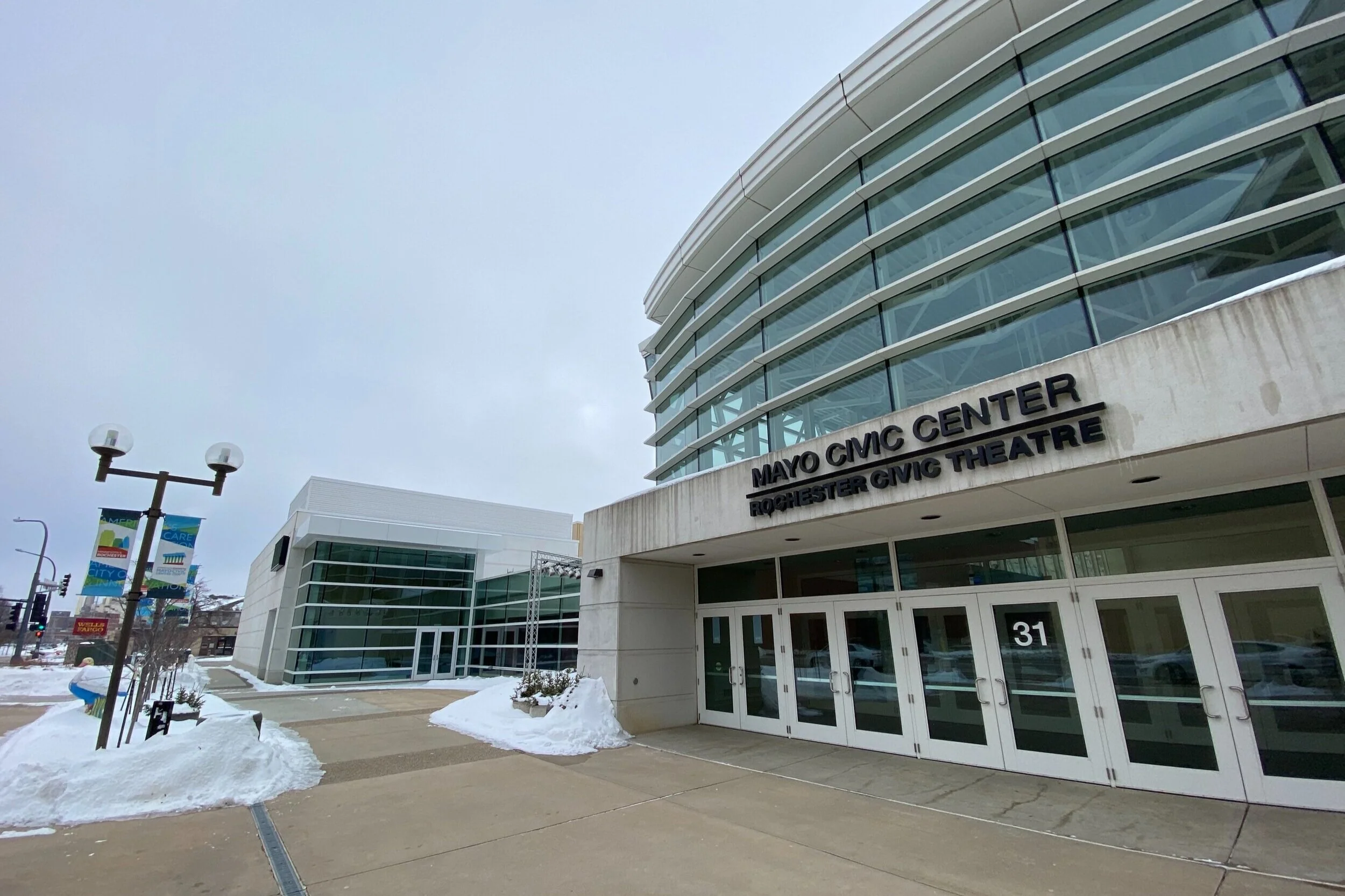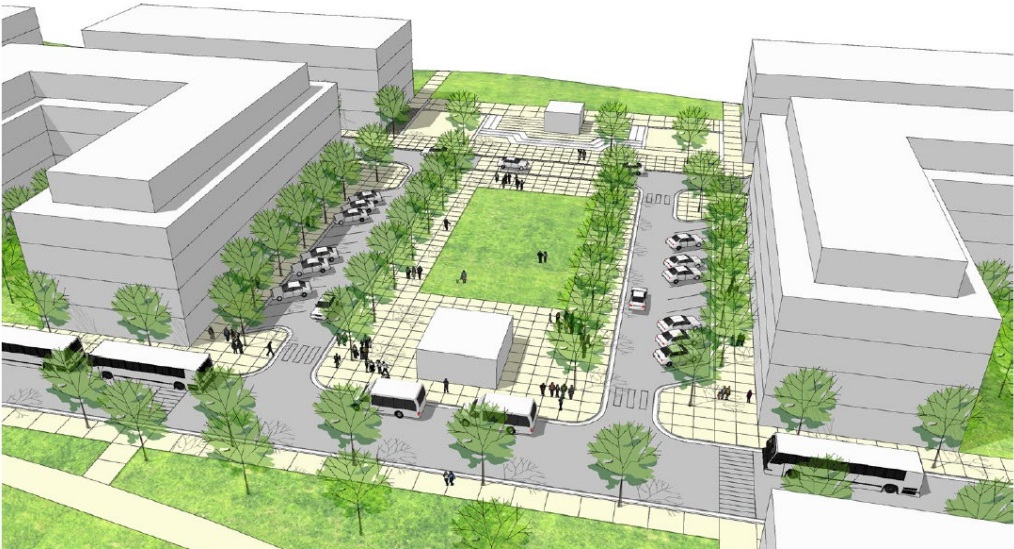City asks: what are your priorities for the downtown transit circulator?
After months of discussion and research, the city decided to move forward with bus rapid transit (BRT) last October. Before transit hubs pop up west and south of downtown, though, the city and Destination Medical Center need input from the public — and that process started Tuesday with the first in a series of planned transit open houses.
Local officials and transit consultants made themselves available this morning to answer questions from the public about the future transit corridor, which will have two “transit villages” — one at Mayo’s West Lot on Second Street Southwest and another at Graham Park/Seneca site on South Broadway. Plans call for infrastructure upgrades and improved placemaking along the bus routes.
“We want to know, what do people want to experience?,” said DMC EDA executive director Lisa Clarke. “What are their priorities for the future of the downtown corridor?”
After reading through a series of informational panels, attendees were invited to mark their priorities on a board with multiple options, like “entertainment,” “housing options,” “parkland,” and “access to water.”
Elizabeth Patterson and Tessie Burley, both students at the University of Minnesota Rochester, came to express their concerns about accessibility and affordability for students, which they say is increasingly becoming a serious problem — not just for housing, but for other necessities as well.
“We’re located in the heart of downtown, we live downtown, but it seems like downtown is fighting [against us],” said Patterson.
A series of panels at the open house showed examples of urban projects in other cities that have successfully met goals of efficiency and equity, both core goals of the transit project. One such project was from Chicago, which combined a branch of Chicago’s public library with affordable housing.
“Rochester is a very distinctive city,” said Christopher Hall, an urban strategy leader with Chicago consulting firm Skidmore, Owings and Merrill, which spearheaded the library project. “There’s a mid-sized population, but Rochester has a global footprint that other cities of its size simply don’t. We want to take the best practices from mid-sized cities and other cities with a global footprint, and put them both in action here.”
The October DMC Corporation board meeting, among other things, brought an amendment requiring both transit hubs to offer affordable housing. With those units, retail space, and (of course) lots of parking, Clarke said she sees the hubs acting as a force against rising traffic in Rochester.
“Rochester’s been a very car-centric city for decades,” Clarke said. “We hope this plan will alleviate some of that dependence.”
This was the first opportunity for the public to make their voices heard, but it won’t be the last. Pop-up events are scheduled for Thursday (Methodist Hospital, 11 a.m.-1 p.m.) and Monday (Saint Marys, 11 a.m.-1 p.m. and Rochester Public Library, 1:30-3:30 p.m.).
After the pop-up events, the next round of open houses will come in April, when DMC will focus on specific plans for the transit hubs.
Isaac Jahns is a Rochester native and a 2019 graduate of the Missouri School of Journalism. He reports on politics, business and music for Med City Beat.








